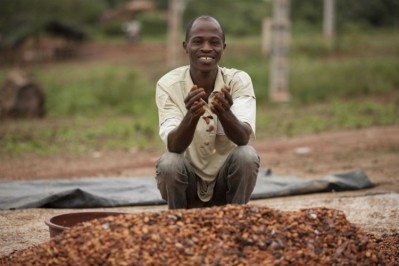Sustainability
Civil societies welcome EU Corporate Sustainability Due Diligence Directive

Welcomed by groups including Human Rights Watch, the Parliament’s vote in Strasbourg is a step forward for corporate accountability, it said.
The Solidaridad Network, an international civil society organisation, said the law will put living income, living wages, and responsible purchasing practices on the agenda of all large corporations.
Solidaridad’s Catarina Vieira said: “The CSDDD requires companies not only to avoid human rights and environmental issues in their value chains, but to fix them. With the right accompanying measures in place, smallholder farmers worldwide can expect to be supported in addressing the root causes of unsustainable practices, such as poverty.”
Key elements in the CSDDD are the recognition of Living Wage and Living Income as human rights that companies need to take into account, as well as the clarification of the importance of addressing the impact of the company's purchasing practices.
Another essential improvement is clarifying that disengagement from suppliers under the law should only happen as a last resort and responsibly.
Impactful human rights
“Finally, we see stronger wording on meaningful stakeholder engagement, which is crucial for impactful human rights and environmental due diligence,” Solidaridad Network said.
To support the next stages, the Fair Trade Advocacy Office, Fairtrade International, the Rainforest Alliance, and Solidaridad have published a paper on information and (financial) support for smallholder producers worldwide.
In a joint release, they said: “As we move towards implementation, suppliers in general, and smallholders in particular, cannot be expected to shoulder the burden of this directive’s ambition by themselves. Therefore, it is crucial that:
• The guidelines and model contract clauses are built on internationally recognised norms and guidance and make it clear that it is not a proper implementation to put cost and responsibilities for human rights and sustainable production on suppliers without adequate support.
• The EU and Member States commit to providing financial support and information to different supply chain actors, civil society, and producers worldwide. We believe that the EU Delegations play a crucial role in ensuring that farmers, workers, and civil society organizations can use this law and that supply chain actors in vulnerable positions are not left without support.
We elaborate on these recommendations in our recently published paper Supporting the implementation of the EU Corporate Sustainability Due Diligence Directive in global supply chains involving smallholders and their communities. “
'Complex and curvy'
The law's genesis was ‘complex and curvy,’ but the human rights and environmental due diligence that will now be mandatory builds on internationally recognised norms developed by the UN and the OECD that have existed since 2011 and established good practices and guidelines.
Daniel Amponsah, Asunafo North Municipal Co-operative Cocoa Farmers (Ghana) said: “Living income is a human right and as producers we appreciate the EU for recognizing that and making it known in the CSDDD. This means companies we work with will be committed to ensuring poverty among farmers is reduced. We however call on EU again to make sure there are measures to support the implementation of the CSDDD.”
Christian Hohlfeld, Rainforest Alliance, said: “Today's landmark legislation marks a crucial step towards corporate accountability. However, for the CSDDD to make a real difference, we need strong backing and practical measures. Let's stand by and support smallholder farmers to ensure the costs of investing in sustainability are proportionally shared along the value chain, and farmers have the means to improve their practices for human rights and the environment.”












